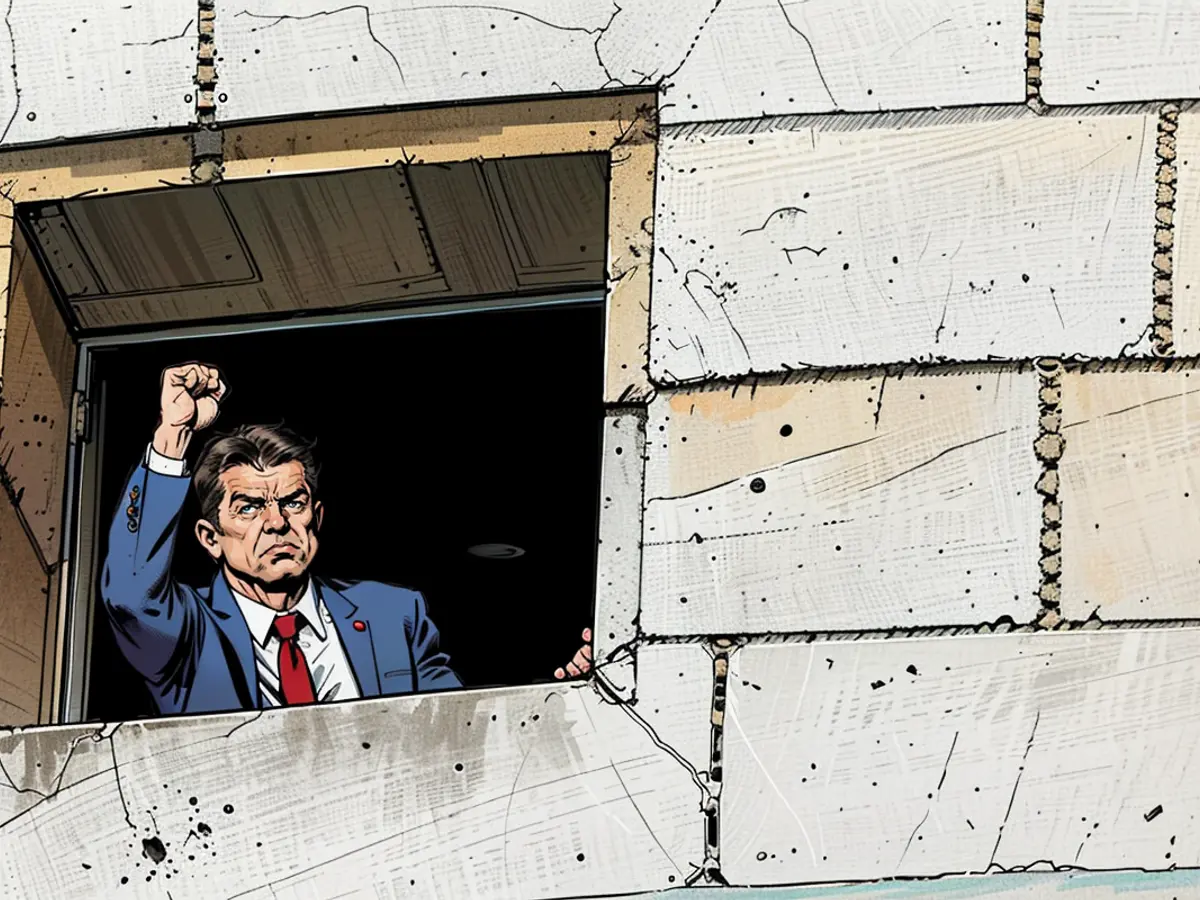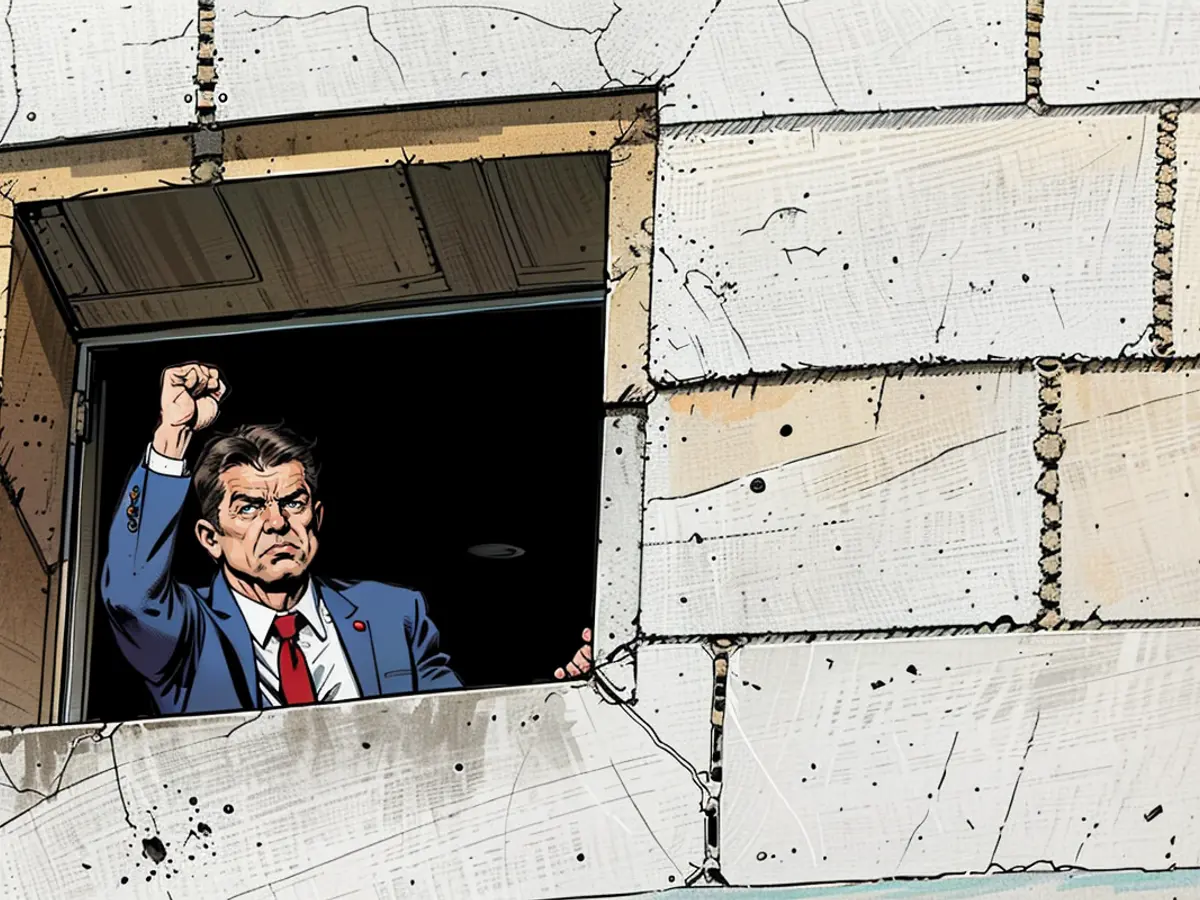Election victory for the left - what happens now in France?
During the French parliamentary elections, the left bloc surprisingly emerges as the winner. The Right-nationalists make gains but have no chance of forming their own government. The Premier announces his intention to resign. So, what's next in France:
Is the Left Bloc in Power Now?
At least that's what the leaders of the Nouveau Front Populaire, the strongest force in the National Assembly, are demanding. As President, it is Emmanuel Macron's prerogative to appoint the Prime Minister. It is still unclear whether he will accept Premier Gabriel Attal's resignation request. Nor is it clear who he would entrust with government formation in such a case. Despite their surprising success, the Left remains far from an absolute majority. Other factions could therefore not only bring down a left-wing government through a vote of no confidence. The past two years, during which Macron's camp had only a relative majority in the parliamentary chamber, have shown that governing without an absolute majority in France is difficult. Whether the Left would fare better in this regard is uncertain, especially since they may have significantly fewer seats than Macron's centrist forces after the dissolution of the National Assembly a few weeks ago.
What's the Timeline for Government Formation?
There are no definitive guidelines for this. Macron could wait until the appointment of a Prime Minister even after the parliamentary summer break. However, the newly elected parliament is scheduled to convene on July 18 for its first session. During this session, the parliamentary president or president will be elected. The following day, decisions will be made regarding vice presidents and the composition of committees.
What happens if no government is formed?
If none of the political blocs obtain an absolute majority or are able to form a government in coalition or with the tolerance of another bloc, Macron could ask Premier Gabriel Attal to continue serving as acting Prime Minister despite his resignation announcement. This transitional period could last several weeks, taking into account the Olympic Games, which begin in Paris on July 26, and the political summer break. Macron could then form a government composed of experts, high-ranking civil servants, and economists. Dissolution of the parliament and new elections are only possible after a year.
What are the Consequences for Germany and Europe?
This is unclear. The Left Bloc has so far left the leadership question open and has no common program. Therefore, it is still undecided which policy they will implement if they come to power. However, it is clear that the Bloc, with the exception of some elements on the far left, is pro-European and firmly committed to supporting Ukraine against the Russian aggression. In the event of political stalemate in France, Berlin and Brussels would no longer be able to rely on France as a strong partner. The country would be more focused on managing than initiating new projects.
Do Le Pen's Right-nationalists still benefit from the election outcome?
Despite the Rassemblement National not becoming as strong as predicted and even ending up behind the Presidential bloc, Marine Le Pen's party recorded significant gains in the National Assembly. It is more represented there than ever before. This growth increases the influence of the party in parliamentary work and allows it to receive more funding, enabling it to prepare for the 2027 presidential election and the next parliamentary election at the latest.
What about Macron?
Whether Macron can salvage anything of his initial claim as France's reformer and champion of a strong Europe remains to be seen in the coming days and weeks. If he manages to establish a long-term governing majority with the participation of his government coalition against the prevailing expectation, he might come out of it with a blue eye. However, since it failed to forge a coalition in the past two years under much clearer power relations, Macron's remaining tenure in office may consist more of managing unstable relations and stagnation in France. Domestically and internationally, he would be weakened. Although the right-wing nationalists were prevented from winning the parliamentary election, Macron and his legacy suffered more harm than help from the new vote.
The upcoming elections for the parliamentary president and the formation of committees will take place on July 18. Despite her party's gains, Marine Le Pen and the Rassemblement National are still far from having the power to form their own government in France.









